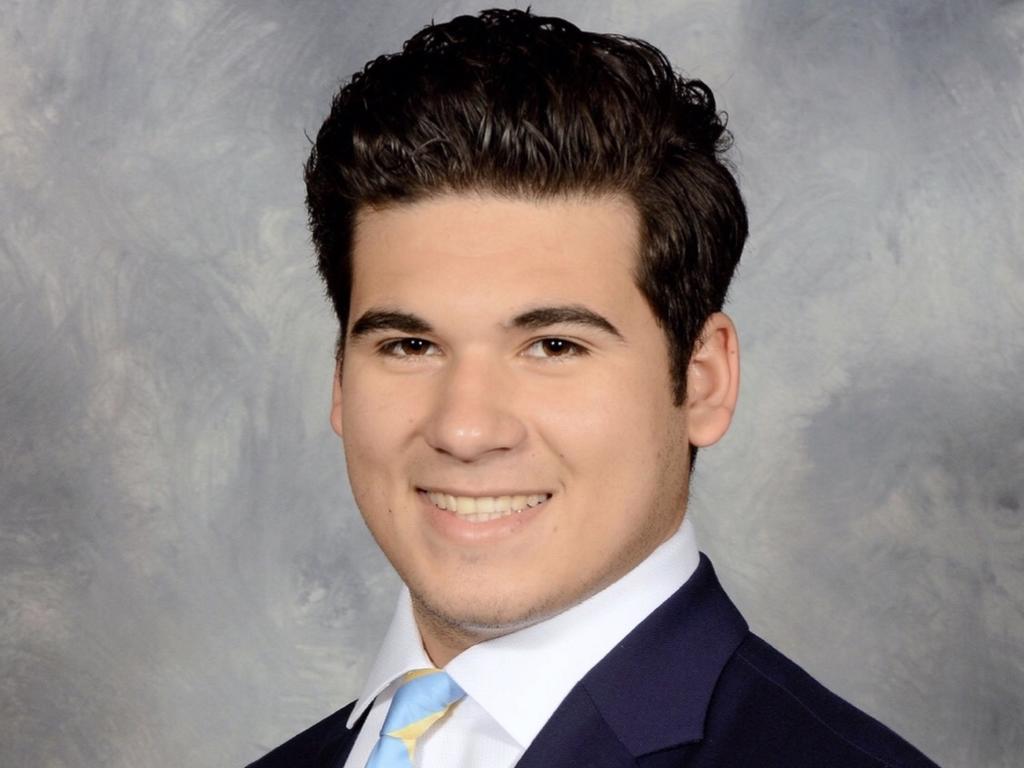Despite the statewide hold on trials this summer, Matthew Mussalli ’21 has barely had a day off as a student clerk. He’s been working alongside several other Rhodes students and alumni at the U.S. Attorney’s Office for the Western District of Tennessee, one of the offices of the U.S. Department of Justice. He has worked there for more than a year, and this summer he experienced firsthand the development of protocols for virtual trials due to the pandemic.
“It’s definitely more than any of us anticipated,” says Mussalli. “Beyond the technical challenges, there are constitutional issues. Defendants have to consent to virtual hearings, often via a camera from the jail. I don’t have knowledge of anyone saying no yet, but it does present a new challenge.”
Mussalli, a psychology major and political science minor, has had many duties in the office, from assisting in motion practice and trial preparation to aiding in trial to performing administrative work. “I try to make the most of my experience by reaching out to different attorneys and offering to help however I can,” he says.
Recently, he helped draft a motion for a federal trial. “It’s pretty cool to be able to say that something I helped write won in federal court, even if it’s not my name on the cover.”
Student law clerks also get to observe hearings and trials of cases they’re working on. Some courts have resumed in-person trials, and, a few weeks ago, Mussalli observed one that he says felt like being in a hockey rink. “Of course, everyone there is wearing a mask, unless they’re testifying. But there’s also face shields, gloves, and Plexiglas surrounding everything.”
Mussalli, who came to Rhodes from Houston, TX, credits his ability to write and think critically, and his courtroom knowledge and skills to numerous professors at Rhodes, including political science professors Anna Eldridge and Daniel Cullen and adjunct psychology professor Tegan Reeves. Mussalli also is captain of the mock trial A team.
“I attribute my legal reasoning, writing ability, confidence in trials, and evidence knowledge to both my Rhodes classes and to mock trial,” he says. “Even knowing how to introduce myself to a judge has helped set me apart.”
Mussalli walked through a protest to get to work two weeks after George Floyd was killed, and he says that the current civil unrest surrounding law enforcement has made him do some serious self-reflection. “When I look at the many interrelated systems in our country, I see deficiencies that may be feeding directly into mass incarceration, racial injustice, and the school-to-prison pipeline,” he explains. “I’ve been in court as a 21-year-old and there’s another 21-year-old across the aisle from me who is facing felony charges. I have the opportunity to sit back and reflect on what challenges that young person may have met or what that young person is missing in his life that would have us end up on opposite sides of the courtroom in two completely different positions.”
In speaking about his passion for victim advocacy, Mussalli says, “It is a great privilege to be able to work under the Honorable D. Michael Dunavant, the U.S. Attorney for the Western District of Tennessee. Every day we come into the office with one goal in mind—to find justice for the people of our community. Under his leadership, our office has helped reduce violent crime drastically in Memphis, and our attorneys certainly are finding justice.”
Mussalli is in the process of applying to law schools and says he intends to be an agent for justice and change from the inside by becoming a prosecutor. “While there is sometimes a negative stigma about prosecutors and I understand that deficiencies do exist, I want to be the person to help fix them. I take crimes that are committed against the community personally, and upholding the rule of law is something that matters to me.”
By Madeleine Wright ’21
Any views or opinions expressed in this article are solely those of Matthew Mussalli and do not necessarily reflect the views or the official policy or position of the United States Attorney for the Western District of Tennessee or the U.S. Department of Justice.
